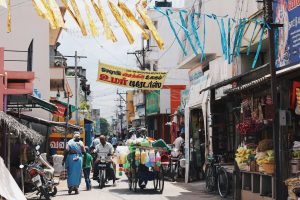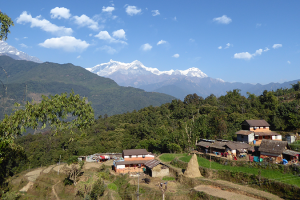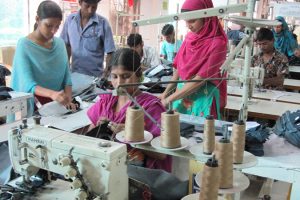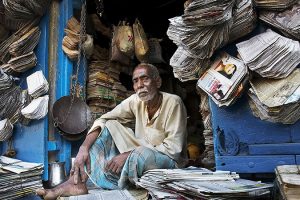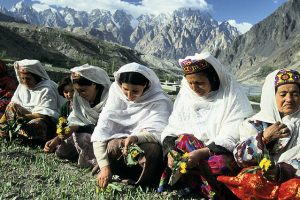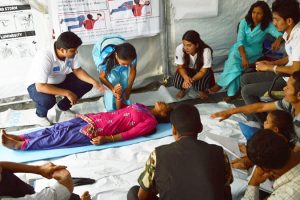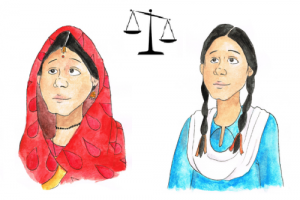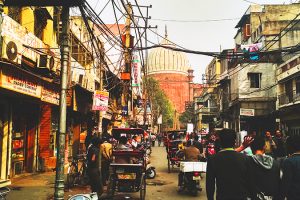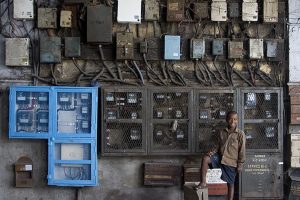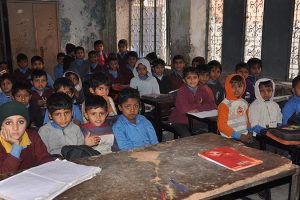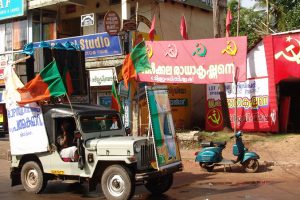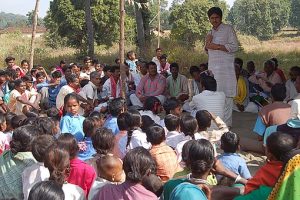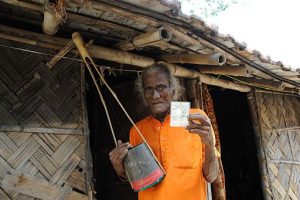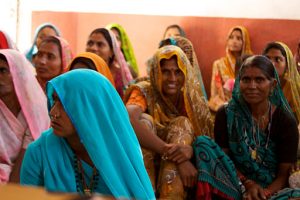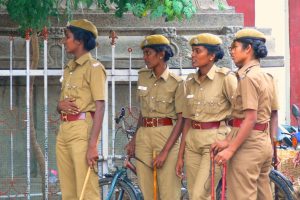South Asia
Using Machine Learning to Promote Fairness and Efficiency in Indian Courts
Biased or slow rulings from judges have serious economic and welfare consequences, including a harmful environment for business. Courts in developing countries face numerous challenges in providing fair and efficient justice to citizens and firms. The challenges include: legal codes…
Using Digital Trails to Improve Management and Accountability for Public Service Delivery
Issue: Delays in receiving wage payments reduce poor rural households’ ability to manage economic uncertainty and meet their subsistence needs. This is a particularly dire concern for the 50 million impoverished rural households who rely on the payments from India’s…
Forest governance in Nepal: from centralized control to local users cooperatives
Focus of the study UNEP flags forest management in Nepal as one of the success stories of the green economy. After decades of forest degradation, the “Community Forest User Groups” program initiated in the early 90’s would have been key…
Media Diversity, Religion and Economic Behaviour: An Analysis of Pakistan
Focus of the study How does exposure to foreign media influence religious and economic behaviour in an Islamic society? What are implications for behaviour along gender dimensions? Two effects are possible. On the one hand, exposure to foreign media may…
Networks of power and crony capitalism in Myanmar
This project is ongoing and will be updated as it progresses. Research team Rocco Macchiavello, LSE – Corresponding PI Amit Khandelwal, University of Columbia GSB, Arthur Blouin, University of Toronto, Felix Forster, University of Warwick (PhD), Matthieu Teachout, University of…
Discretion versus rule-based budgeting and assignment in Indian governments
Discretion versus rule-based budgeting and assignment in Indian governments – Inter-tier allocation of fiscal resources Background motivation for the research The literature on decentralization and service delivery in developing countries has largely focused on problems of political accountability of local…
Judicial independence in Pakistan
Focus of the study Judicial independence from state bureaucracies is considered critical for the stability of institutions and for ensuring the rule of law. As such, judicial independence is crucially important for understanding the development process. Our primary aim in…
A woman’s place is in the production management?
Focus of the study This project focuses on the question of social identity as constraints to women’s career advancement and firm productivity in Bangladesh’s garment sector. The Bangladeshi garment industry was instrumental in expanding women’s employment opportunities in the urban…
Democratization and the supply of news media: Evidence from India
Focus of the study How does the media market react to institutional changes? This study investigates how media owners react to democratization, and in particular, estimates the extent to which their reaction is driven by a search of political influence….
Clans, religion, and politics: A case study of Pakistan
Focus of the study If religion is interpreted in a manner that makes its prescriptions coincide with national interests or if it has been “nationalized” by rulers seeking religious legitimacy, we would normally expect the religious ideology to operate as…
Women’s inheritance and female empowerment
Focus of the study This study examines changes in the overall agency of women in Pakistan who receive inheritance in the form of higher autonomy, more control and access to finances and resources, or improved bargaining power. Unfortunately, there is…
Combatting caste- and gender-based discrimination in the healthcare and education sector
Customizing incentives to combat caste- and gender-based discrimination in the healthcare and education sector (Nepal and India) Focus of the study Inequities in access as well as quality of healthcare and education are a major challenge facing developing economies. Anecdotal…
Child marriage law, gender norms and marriage customs (Bangladesh)
Focus of the study Our key research question is: Do laws regarding child marriage (marriage below the age of 18) influence social attitudes and marriage practices when the state has limited enforcement capacity? This study investigates the effects of child…
Community networks and industrial entrepreneurship in India and China
Focus of the study This case study focuses on the role of community networks in early industrialization in pre-Independence India and in contemporary China. Our research is based on panel data collected on individual entrepreneurs and firms, which includes information…
Improving property tax collection in South Delhi
Improving property tax collection in South Delhi: Reducing property owner and monitor incentives to misreport Issue: Increasing tax revenue can improve the ability of public institutions to finance services for citizens. However, a fundamental constraint common in developing countries is…
Monitoring the Performance of Agents in Public Service Delivery
Issue: India’s state-run electricity distribution companies (discoms) often lose up to half of the power they are supposed to supply to customers to theft, losses and non-payment. Despite these inefficiencies and corruption, electricity distribution cannot be wholly privatized to improve…
Beyond the Paycheck – Motivational tools for public school teachers
Issue: The performance of frontline public sector workers is a significant problem in developing countries where low attendance and effort limit the value of service delivery, thereby diminishing well-being and economic development. Poor performance of public school teachers remains a…
Training Politicians to Better Serve
Issue: India, a developing country with a strong and vibrant democracy, exhibits many elements of weak institutions and associated problems of ineffective governance. Both state and national legislatures are characterized by high levels of corruption, criminality, and poor performance. At…
Bangladesh Institutional Diagnostic
Bangladesh has been identified as the third country study for research towards developing an institutional diagnostic tool. The Bangladesh institutional diagnostic aims at comprehensively exploring the relationship between the characteristics and the functioning of a country’s institutions and its economic…
Who is Bogus? Catching Fraudulent Firms in Delhi
Issue: A common VAT tax evasion strategy in low compliance environments involves fraudulent “paper” firms that allow other firms to reduce their tax liabilities. Identifying these fraudulent firms can potentially help recover lost tax revenue, but locating them is a problem for…
Bottom-Up Transparency Initiatives to Reduce Corruption
Issue: Transparency interventions frequently rely on a top-down approach in which a policymaker or external entity demands information about activity in a particular sector. Bottom-up transparency interventions differ by offering citizens the opportunity to directly initiate efforts to improve public goods or services….
Governance Capacity and Political Selection
Issue: The digitization of key government services — in this case, India’s National Rural Employment Guarantee Scheme — can streamline public service delivery and reduce the ability of politicians to misappropriate state funds. Political officials face challenges if they lack sufficient…
Is Knowledge Power? Civics Training, Women’s Political Representation, and Local Governance in India
Issue: Women continue to be under-represented in political office, making up approximately only 22% of members of parliament worldwide. Despite this marginalization, little is known about how to increase women’s political participation and the role between women’s electoral representation and…
Institutional Reform and de facto Women’s Rights
Issue: In many socially-conservative settings, legal protections and provisions have frequently outpaced how administrators enforce these rules. In Pakistan, for example, government officials often use their own judgement and respond to local concerns when carrying out functions critical to women’s rights, including…
Reforming Police Practices in India
Issue: The Indian state of Madhya Pradesh’s police force has a low officer to citizen ratio with multiple vacant positions, and a lack of representation of women in their ranks. Efforts have begun to make police forces more public-oriented, but…
